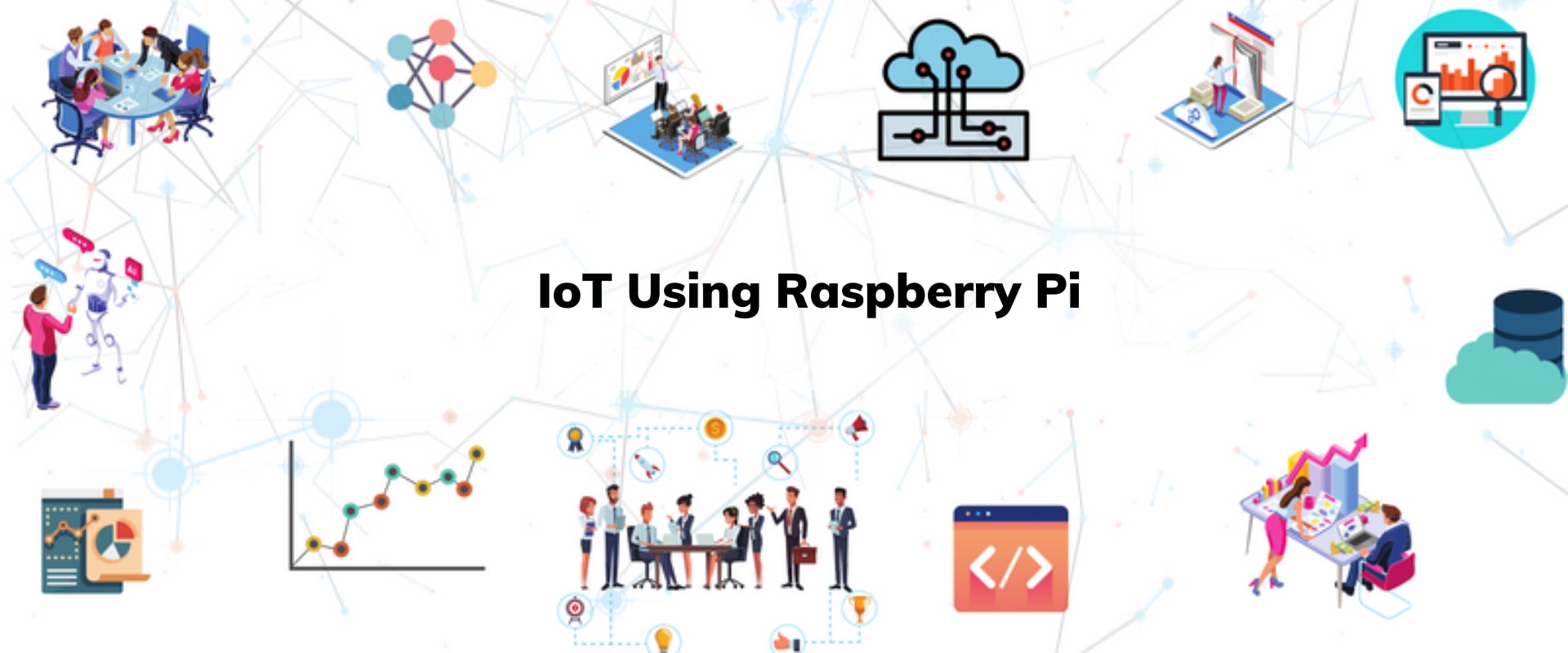Unlocking IoT Potential: The True SSH Raspberry Pi IoT Price Explored
Table of Contents
- Introduction: The Raspberry Pi Revolution in IoT
- The Raspberry Pi: Your IoT MVP
- Understanding the SSH Raspberry Pi IoT Price Factors
- SSH: The Secure Backbone of Remote IoT Management
- Setup Considerations for Your Raspberry Pi IoT Project
- Leveraging Remote Access: From VNC to Remote.IoT
- Maximizing Potential: Cost-Effectiveness and Innovation
- Conclusion: Empowering Your IoT Journey with Raspberry Pi and SSH
Introduction: The Raspberry Pi Revolution in IoT
If you're diving into the world of IoT (Internet of Things), SSH Raspberry Pi IoT price is probably one of the hottest topics you’ve come across lately. Whether you're a hobbyist, a tech enthusiast, or even a professional developer, understanding the costs and benefits of Raspberry Pi in IoT projects can make or break your next big idea. This article will delve into the price factors, setup considerations, and practical applications, providing a comprehensive guide to this powerful combination.
The convergence of the Internet of Things (IoT) and secure remote access via SSH (Secure Shell) has revolutionized how we manage and interact with our devices, and understanding the best platforms is crucial for anyone working with Raspberry Pi. The quest for the SSH Raspberry Pi IoT price is more than just a search for the cheapest components; it's about understanding how to leverage the Raspberry Pi's capabilities securely and efficiently within an IoT ecosystem. So, let’s break it down step by step, shall we?
The Raspberry Pi: Your IoT MVP
The Raspberry Pi isn’t just a piece of hardware—it’s a movement. It represents a community of makers who are redefining what’s possible with affordable tech. From industries large and small, to the kitchen table tinkerer, to the classroom coder, we make computing accessible and affordable for everybody. And when it comes to IoT, the Raspberry Pi is the MVP. Whether you're building a smart home system, automating your garden, or creating a weather station, this little board packs a serious punch.
- Cisco Adler Net Worth
- William Abadie Wife
- Sophia Deso Onlyfans Leaked
- Wyclef Jean Net Worth
- Chloe Bennet
With its small footprint and low price point, the Raspberry Pi serves as an ideal gateway for your IoT devices. It can be configured to connect to your VPC, acting as a bridge between your devices and the remote management system. Its versatility and robust community support make it an unparalleled choice for a wide array of IoT applications, empowering users to create innovative and impactful IoT solutions. This small but mighty device has truly democratized access to powerful computing for embedded systems, making complex projects feasible for a wider audience.
Understanding the SSH Raspberry Pi IoT Price Factors
The average SSH Raspberry Pi IoT price depends on the model and additional components. While the core board is famously affordable, the total cost can vary significantly based on your project's scope and complexity. Understanding these factors is crucial for budgeting and maximizing your investment, ensuring you get the most value for your money.
Hardware Costs: Beyond the Board
When considering the cost of a Raspberry Pi IoT project, the board itself is just the starting point. Several other hardware components contribute to the overall expenditure:
- Raspberry Pi Model: A basic setup with a Raspberry Pi 4 Model B starts at around $35. However, the Raspberry Pi family includes various models, each with different price points and performance capabilities. For instance, the ultra-compact Raspberry Pi Zero W is more budget-friendly (around $10-$15) but offers less processing power, making it suitable for simpler, low-power applications. On the other hand, the newer Raspberry Pi 5 provides significantly enhanced performance for more demanding tasks but comes with a higher price tag (typically $60-$80). Choosing the right model based on your project's requirements is the first step in managing your budget.
- Power Supply: A stable and sufficient power supply is non-negotiable for reliable operation. Skimping here can lead to unexpected shutdowns or data corruption. A quality USB-C power supply specifically designed for Raspberry Pi models 4 and 5, or a micro-USB supply for older models, typically costs between $5 and $15.
- MicroSD Card: This tiny card acts as the Raspberry Pi's hard drive, storing its operating system and all your project data. Its quality and speed are crucial for performance. A reliable 32GB or 64GB Class 10 or U1 microSD card from a reputable brand can range from $10 to $25. Investing in a durable card is wise, as frequent writes (common in IoT logging) can degrade cheaper cards quickly.
- Case: While optional, a case protects your Raspberry Pi from physical damage, dust, and static discharge, prolonging its lifespan. Simple plastic cases can be found for $5-$15, while more robust metal cases with integrated cooling solutions might cost $20-$40. For outdoor or industrial IoT deployments, specialized waterproof or ruggedized enclosures can run significantly higher.
- Cooling Solutions: For computationally intensive IoT applications, especially with the Raspberry Pi 4 or 5, effective cooling is vital to prevent thermal throttling and ensure consistent performance. This can involve passive heatsinks ($5-$10), active cooling fans ($10-$20), or even more advanced cooling systems for enclosed environments.
- Peripherals (Initial Setup): For the initial setup and configuration, you might need a monitor (via HDMI), a keyboard, and a mouse. While these aren't typically part of the deployed IoT system, they represent an initial investment if you don't already own them.
- Additional Sensors and Modules: This category is where the total cost can truly range. Depending on your specific IoT project, you might need various sensors (temperature, humidity, motion, light, gas), actuators (relays, motors), cameras, or communication modules (LoRa, Zigbee, cellular modems). Each of these components can add anywhere from a few dollars to hundreds, making the total cost range from $50 to $200, or even substantially more, depending on your project’s complexity and the number of data points or control mechanisms involved. For example, a sophisticated smart agriculture system might require dozens of specialized sensors, significantly increasing the overall outlay.
Software and Licensing Considerations
While the Raspberry Pi thrives on open-source software, which generally incurs no direct licensing fees, it's important to consider other potential software-related costs in your IoT project:
- Operating System and Core Software: The primary operating system, Raspberry Pi OS (based on Debian Linux), is entirely free and open-source. Most development tools, programming languages (like Python, Node.js), and libraries are also freely available. This significantly reduces the software overhead compared to proprietary embedded systems.
- Cloud Services: Many IoT projects leverage cloud platforms (e.g., AWS IoT, Google Cloud IoT Core, Microsoft Azure IoT Hub) for data storage, processing, analytics, and remote management. While these platforms often offer generous free tiers for initial development and low-volume usage, scaling up your project can lead to usage-based costs. These can include data ingress/egress fees, compute time for serverless functions, database storage, and message brokering charges. Careful planning and monitoring are essential to keep these costs in check.
- Specialized Software/APIs: For niche applications, you might encounter proprietary software or APIs that require licensing fees or subscription models. This could be for specific data visualization tools, advanced analytics platforms, or integrations with commercial services. Always check the licensing terms for any third-party software you plan to use.
- VPN Services: If you opt for a commercial VPN service for enhanced network security or remote access, this would be a recurring subscription cost. While not always necessary, it's an option for specific security architectures.
- Development Tools: While many excellent IDEs and development tools for Raspberry Pi are free (e.g., VS Code, Thonny), some professional-grade tools or simulation software might have licensing fees, especially for commercial development teams.
Therefore, when evaluating the SSH Raspberry Pi IoT price, it's crucial to look beyond the initial board cost and consider the entire ecosystem of hardware and potential software dependencies, including ongoing operational costs. A holistic view ensures accurate budgeting and avoids unexpected expenses down the line.
SSH: The Secure Backbone of Remote IoT Management
Why does SSH matter for your remote IoT web SSH Raspberry Pi setup? When you're working with IoT devices, you often need to access them from different locations. Whether you're tweaking settings, deploying updates, or troubleshooting issues, SSH gives you the flexibility to do so without physically being near the device. SSH provides the secure remote access necessary for managing these devices, but the overall cost involves more than just the price of the Pi itself; it involves the investment in secure, reliable operation.
SSH (Secure Shell) is a cryptographic network protocol for operating network services securely over an unsecured network. For IoT devices, this means you can securely log into your Raspberry Pi from anywhere in the world, execute commands, transfer files, and manage your device without exposing sensitive information to eavesdropping or tampering. This robust security feature is paramount in an age where cyber threats are constantly evolving and IoT devices are increasingly targeted. SSH Raspberry Pi IoT is a powerful combination that empowers users to create innovative and impactful IoT solutions. With its affordability

IoT Using Raspberry Pi - Pianalytix - Build Real-World Tech Projects

IOT Using Raspberry-Pi - Ramaiah College of Arts, Science and Commerce

How the IoT Devices Raspberry Pi are Impacting Our World Today - RayPCB